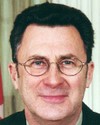moved:
That this House call upon the government to act on the words of the Health Minister when he said, “we have grave reservations about investing public funds in private for-profit facilities”, by immediately amending the Canada Health Act to provide that provinces be financially penalized if they allow public funds to be used for the provision of insured services by private, for-profit hospitals.
Mr. Speaker, I am going to share my time with my dear colleague for Winnipeg North Centre.
The motion we put forward today comes as a result of what transpired here last week. After months of hand wringing, after months of promises to carefully study, after months of posturing, the health minister stood in this place and gave the green light to Ralph Klein's efforts to privatize health care in this country.
The Minister of Health said that he has a problem with Alberta's bill 11. Our motion today offers a solution. With today's motion we are offering the government a way to act on the concerns of the health minister, the concerns he himself has been forced to acknowledge again and again.
It is a way to stop Alberta's bill 11 from triggering a huge expansion of for profit health care for Canadians. It is a way to uphold the intent and promise of the Canada Health Act that all Canadians shall have equal access to health care when they need it. It is a way to do what Canadians expect of this government which is to stand up for our most cherished social program.
Let us back up a bit. Let us go over the highlights of the tragic comedy known as the federal reaction to bill 11. Since last fall the minister has voiced concerns about bill 11. The Klein government has dismissed those concerns, barely able to conceal its contempt for Canada's Minister of Health.
The minister's strategy is to buy time. First he waited to see the actual legislation. The draft the Alberta government sent him was not good enough. Then he waited to see the amendments, then the legislation in its final form, then it was the regulations. Now he wants to see specific violations of the Canada Health Act before he is prepared to do anything.
It is time for the minister to take action, and right now. All his protestations to the contrary, let us be clear about it, the minister does have an option. If he continues to claim that he cannot apply the Canada Health Act, he can change it in order to ensure that no Canadian has to make a choice between paying extra or taking the risk of getting second class treatment.
Accessibility is a fundamental principle of the Canada Health Act. The act requires that provincial governments as a condition of receiving federal transfers ensure that insured health services are provided on uniform terms and conditions. The minister knows that bill 11 compromises the principle of accessibility. He said so in a letter to his Alberta counterpart. He stated:
To permit for profit facilities to sell enhanced services, in combination with insured services, would create a circumstance that represents a serious concern in relation to the principle of accessibility.
The concern which we share is that bill 11 permits, in fact encourages and facilitates, queue jumping and two tier health care. All the pious statements by Mr. Klein aside, that is the main goal of bill 11. Patients in private for profit hospitals will be offered uninsured, or enhanced services so-called, for which they will be required to pay extra and if they refuse they will undoubtedly face second class treatment.
Let us forget about the technical and legal arguments. Let us think about Canadians who are put in that position, Canadians who are vulnerable, scared and sometimes desperate, often suffering severe pain, Canadians who have always trusted their doctors but in that position are not so sure. With bill 11 American health corporations put doctors in the position of having one hand on the scalpel and one hand on the cash register. Canadians who cannot pay will be forced to settle for inferior service.
The minister hoped to make bill 11 magically disappear by beefing up monitoring. However, this move described quite rightly by the auditor general many months ago, does not solve the root problem because these staff cannot be in an operating room or in the doctor's office when a patient is asked whether she wants to pay a little extra or settle for the minimum level of service. They cannot see inside the doctor's head when she schedules a procedure or books an appointment for us with a specialist.
The minister himself said in his letter that the threat to accessibility is the circumstance created by bill 11, namely allowing for profit hospitals to sell uninsured services while also providing publicly funded insured services. That is why it is a shameful evasion to now say that the Minister of Health must wait for specific documented violations before moving to enforce the Canada Health Act. He is hiding behind a legal ambiguity in the act to avoid doing anything whatsoever.
Our motion removes that ambiguity. It clarifies how the principle of accessibility must be upheld in a world in which commercial health corporations aided by their political cronies are trying to dismantle our public health system. It ensures that all Canadians are treated equally in hospitals receiving public health care dollars.







